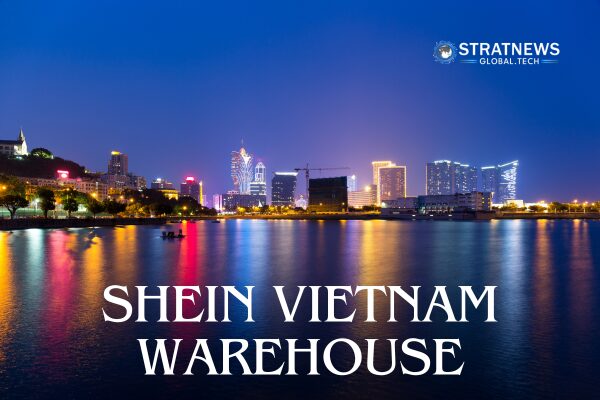Shein Secures Vietnam Warehouse to Ease China Dependence Amid Trade Tensions
Fast-fashion giant Shein has leased a vast warehouse near Ho Chi Minh City, marking its first major logistics move into Vietnam. According to two sources familiar with the matter, the facility spans nearly 15 hectares and is expected to support the retailer’s efforts to ease exposure to ongoing US-China trade risks.
Shift Towards Supply Chain Diversification
Founded in China, Shein has largely relied on local suppliers to serve global markets, particularly the US. However, rising tariffs and shifting trade policies have forced the company to look elsewhere. One source revealed that Shein is also exploring additional storage space in southern Vietnam. The large warehouse—roughly the size of 26 football fields—will store apparel ahead of international shipping.
Though Reuters was unable to confirm the exact origin of goods destined for this site, Shein has previously noted plans to diversify sourcing by including countries like Turkey and Brazil. At the same time, several Chinese manufacturers have reportedly relocated production to Vietnam, contributing to shifting order volumes.
Strategic Logistics Hub Near Ho Chi Minh City
Ho Chi Minh City offers a strategic base with access to Vietnam’s largest port, an international airport, and key maritime routes to the US. While the lease terms remain undisclosed, the location could help Shein bypass rising costs and scrutiny linked to Chinese exports.
In recent years, Washington has accused some Chinese goods of being rerouted through Vietnam to avoid tariffs. In response, Vietnam has tightened checks on certain imports to maintain trade credibility.
Despite a recent easing of tensions between Washington and Beijing, Shein appears to be proceeding cautiously. Experts argue the company has little choice but to diversify its operations to protect against future policy shifts.
Continued Expansion Amid Market Uncertainty
Shein has built a strong manufacturing base in China, relying on a vast network of suppliers to meet the fast-paced demands of Gen Z shoppers. The firm continues to invest heavily in China, including a $500 million supply chain hub under development near Guangzhou.
Still, the company faces evolving trade rules. Until recently, Shein benefited from the US “de minimis” rule, allowing duty-free import of packages under $800. That exemption was revoked on May 2 for Chinese goods, resulting in new tariffs as high as 120%. A recent US-China agreement reduced these to 54% for small parcels and 30% for low-value commercial shipments.
Despite this partial relief, Vietnam remains a cost-effective alternative. Goods exported from Vietnam to the US still qualify for the $800 exemption—at least for now.
However, industry analysts warn that the de minimis rule may soon be eliminated entirely. Manish Kapoor, CEO of Growth Catalyst Group, advises businesses not to depend on it. “We’re advising people to expect that this exemption could be gone completely before long,” he said.
Vietnamese exports already face a 10% tariff, which could rise to 46% in July unless a deal is reached with the US. In this environment, Shein’s Vietnam expansion appears to be a calculated step to build resilience against future disruptions.
with inputs from Reuters


